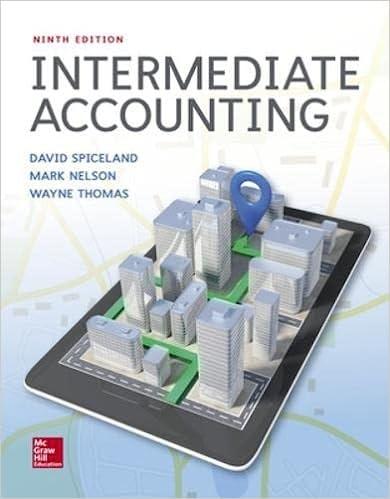FASB ASC 71560: CompensationRetirement BenefitsDefined Benefit PlansOther Postretirement (previously Statement of Financial Accounting Standards No. 106) establishes
Question:
(a) Unlike pension liabilities, no federal law requires companies to fund nonpension postretirement benefits and
(b) Funding contributions, again unlike for pension liabilities, are not tax deductible. (The costs aren't tax deductible until paid to, or on behalf of, employees.)
Required:
1. As a result of being required to record the periodic postretirement expense and related liability, most companies now report lower earnings and higher liabilities. How might many companies also report higher assets as a result of GAAP for postretirement plans?
2. One objection to current GAAP as cited in the chapter is the omission of requirements to discount deferred tax amounts to their present values. This objection is inappropriate in the context of deferred tax amounts necessitated by accounting for postretirement benefits. Why?
GAAP
Generally Accepted Accounting Principles (GAAP) is the accounting standard adopted by the U.S. Securities and Exchange Commission (SEC). While the SEC previously stated that it intends to move from U.S. GAAP to the International Financial Reporting Standards (IFRS), the...
Fantastic news! We've Found the answer you've been seeking!
Step by Step Answer:
Related Book For 

Intermediate Accounting
ISBN: 9781259722660
9th Edition
Authors: J. David Spiceland, James Sepe, Mark Nelson, Wayne Thomas
Question Posted:





